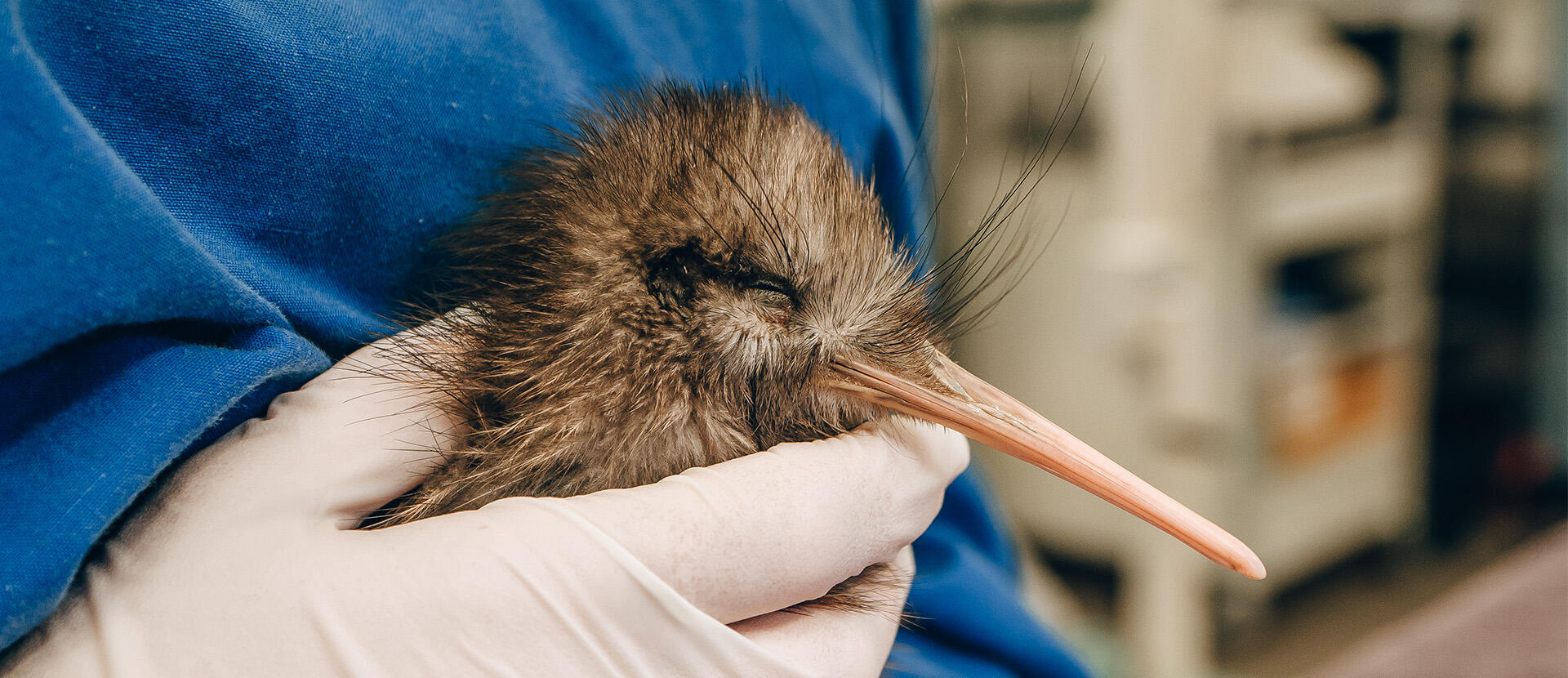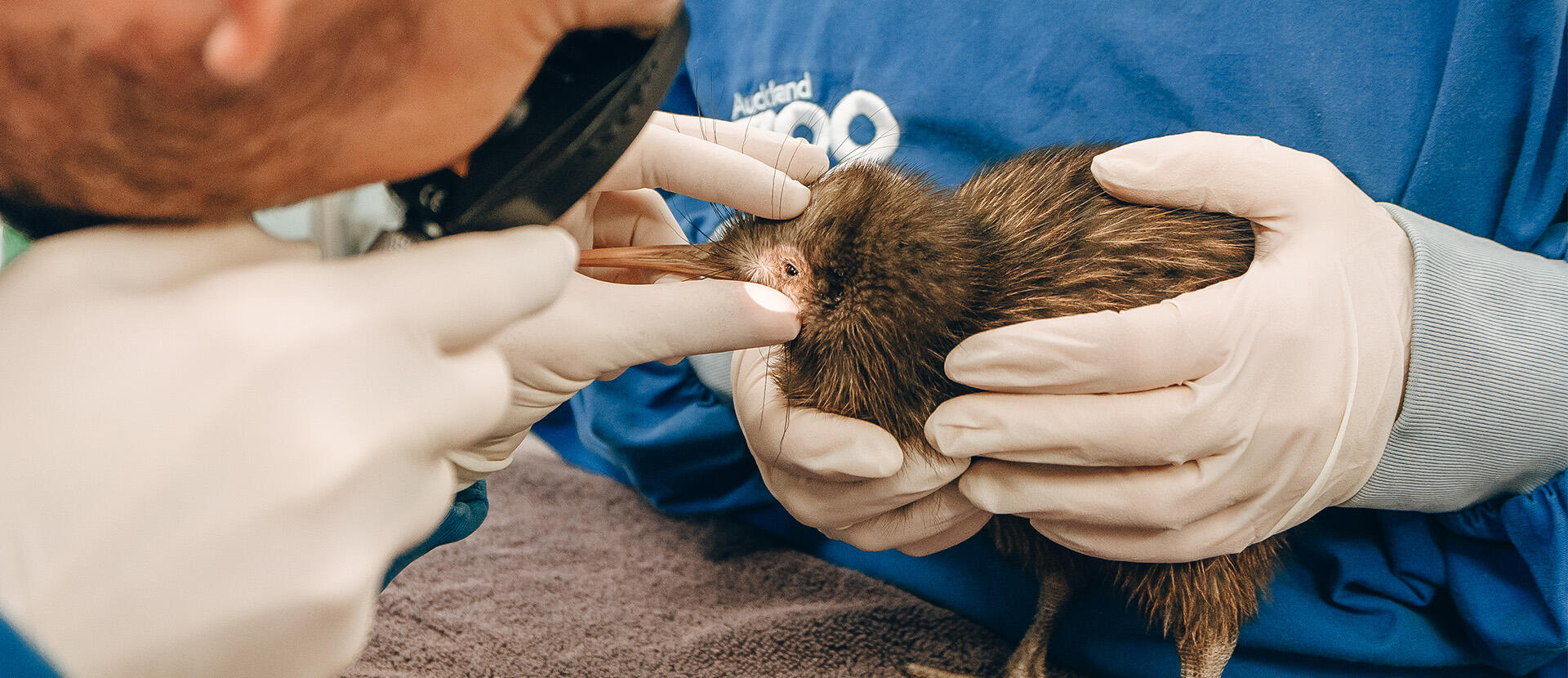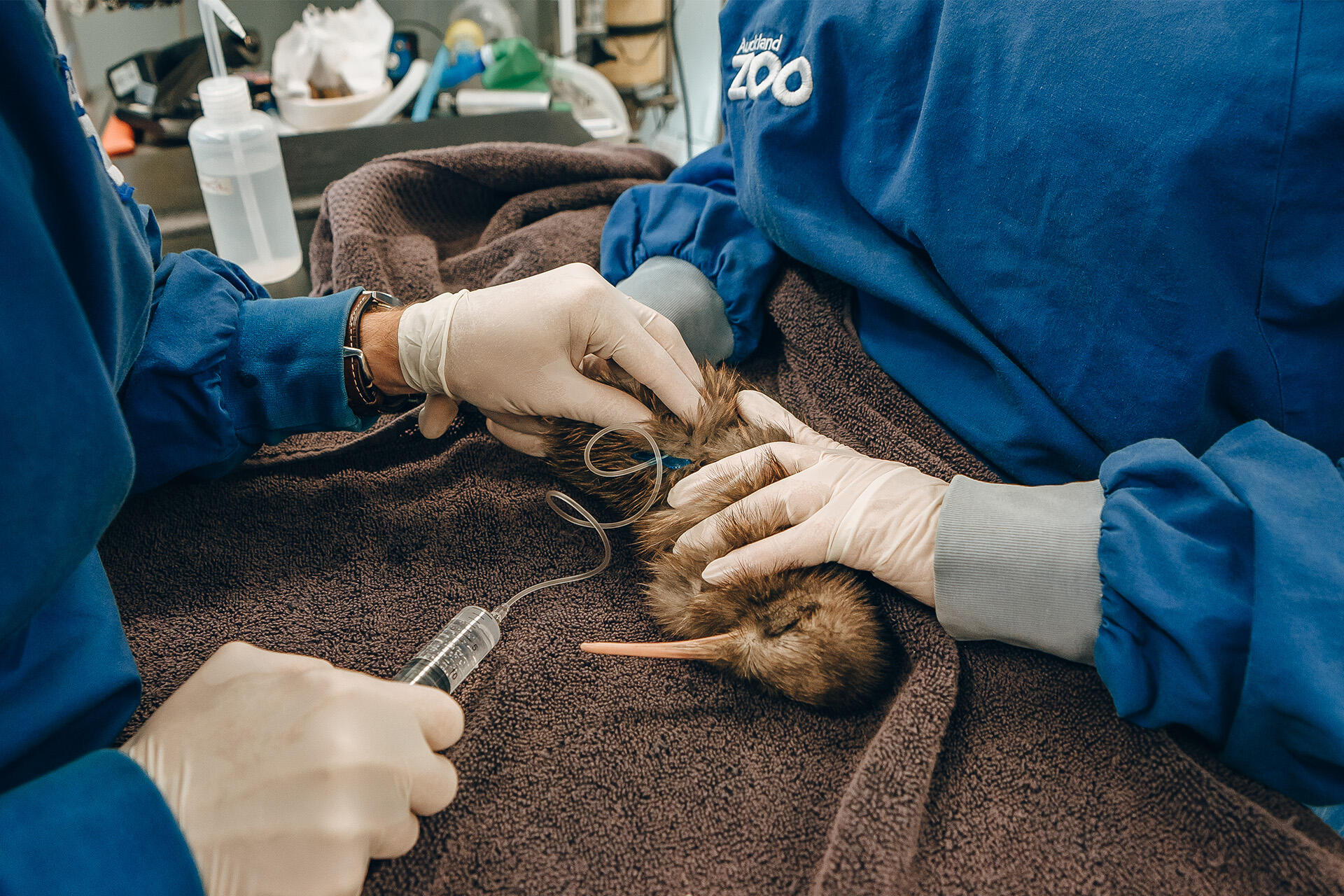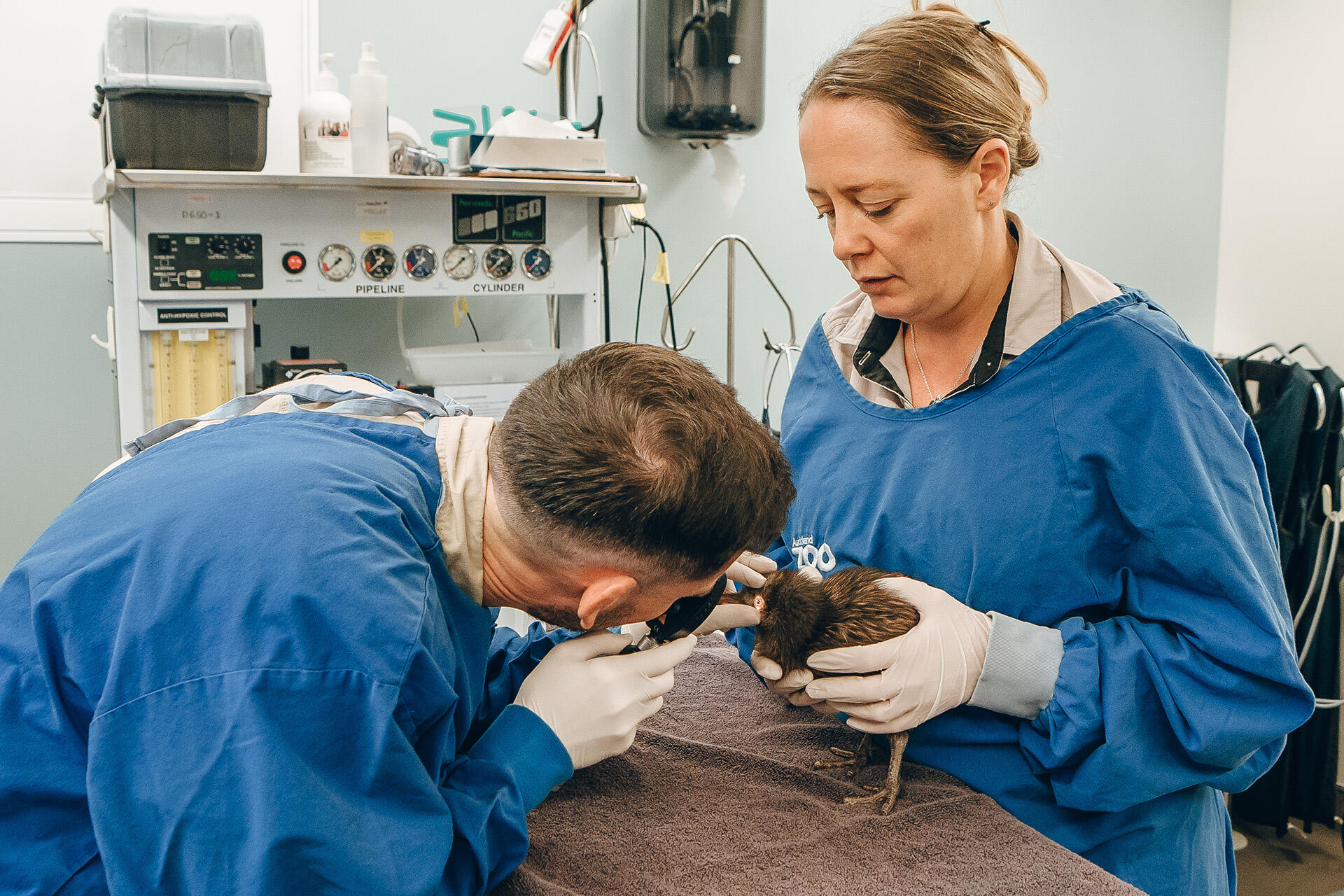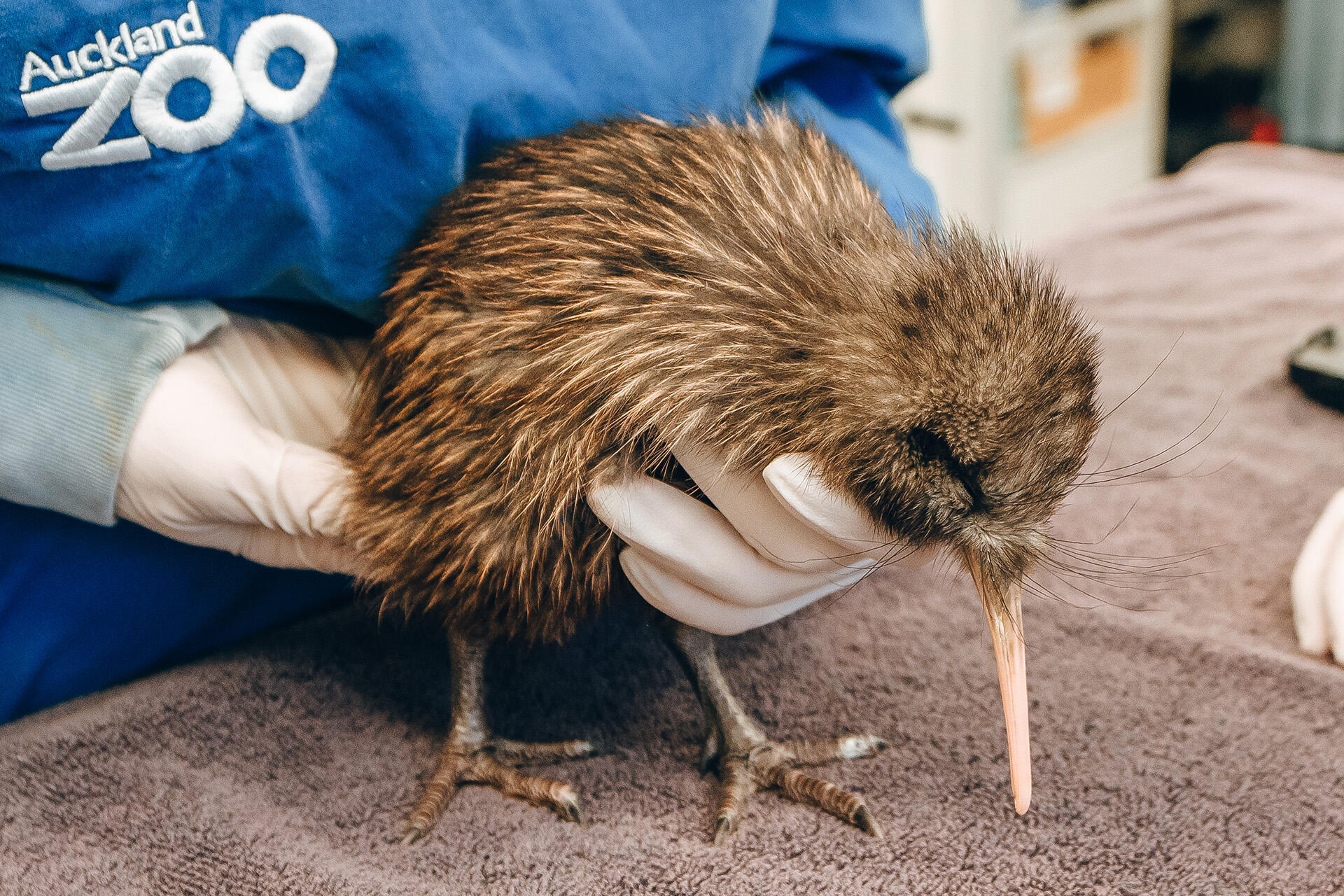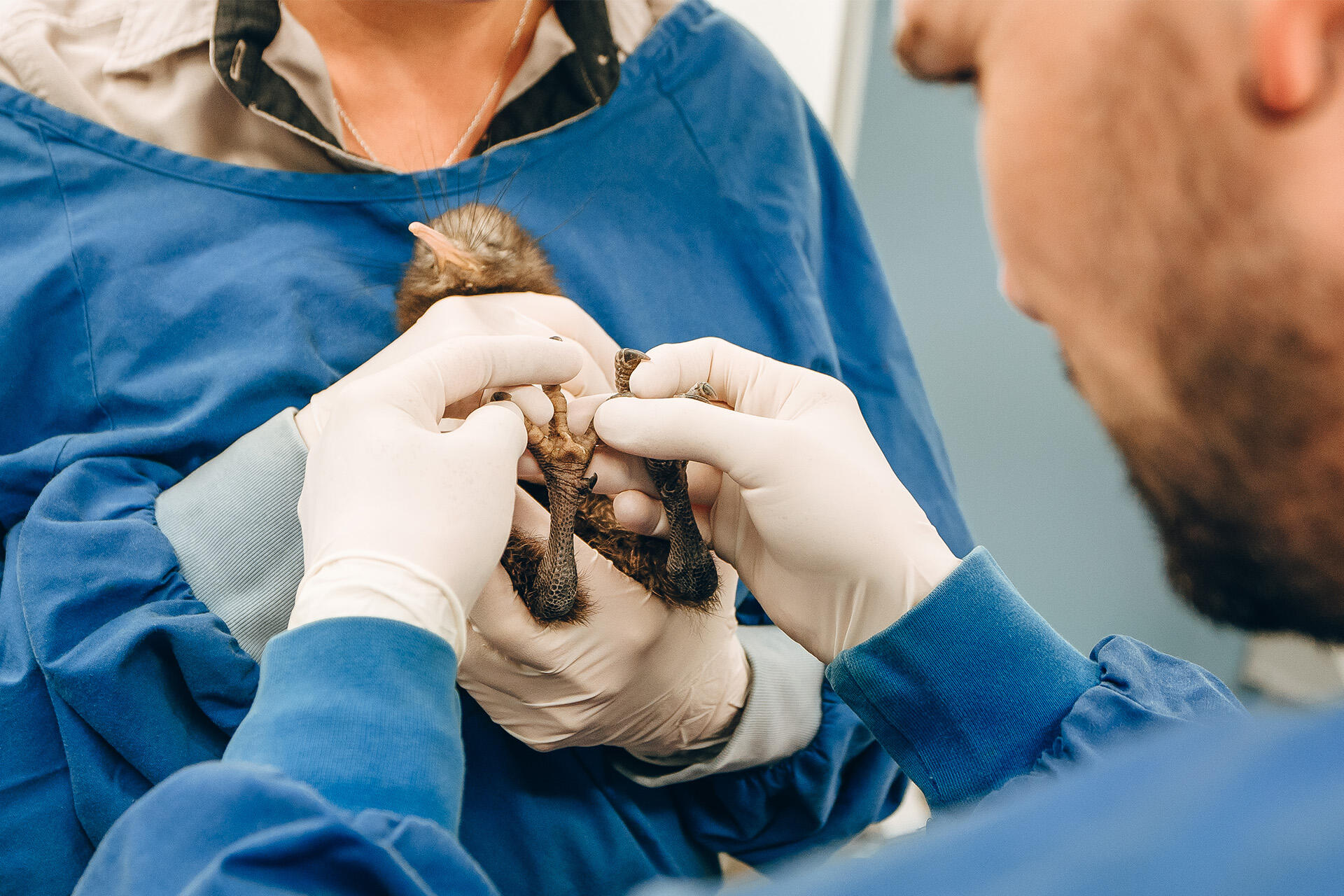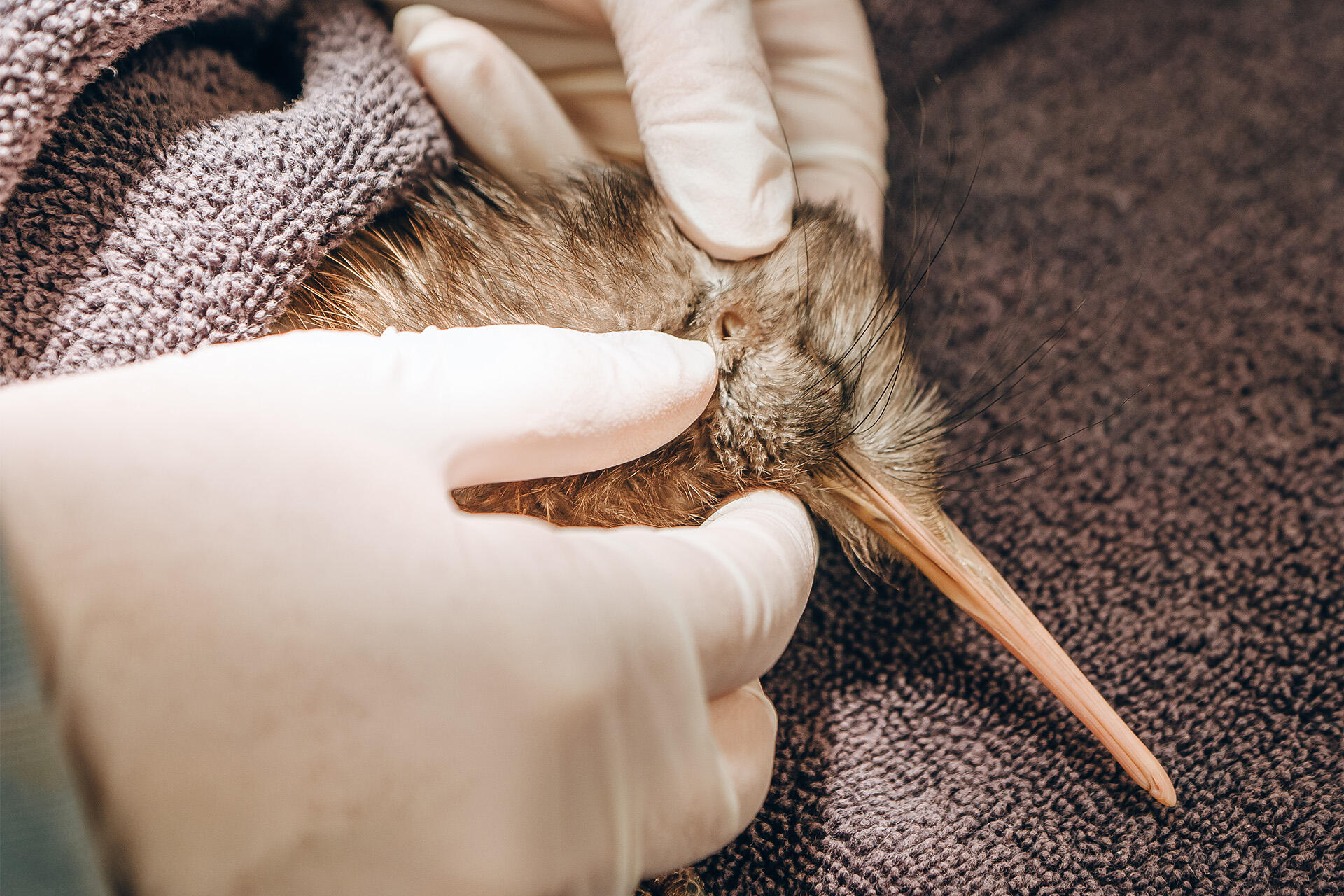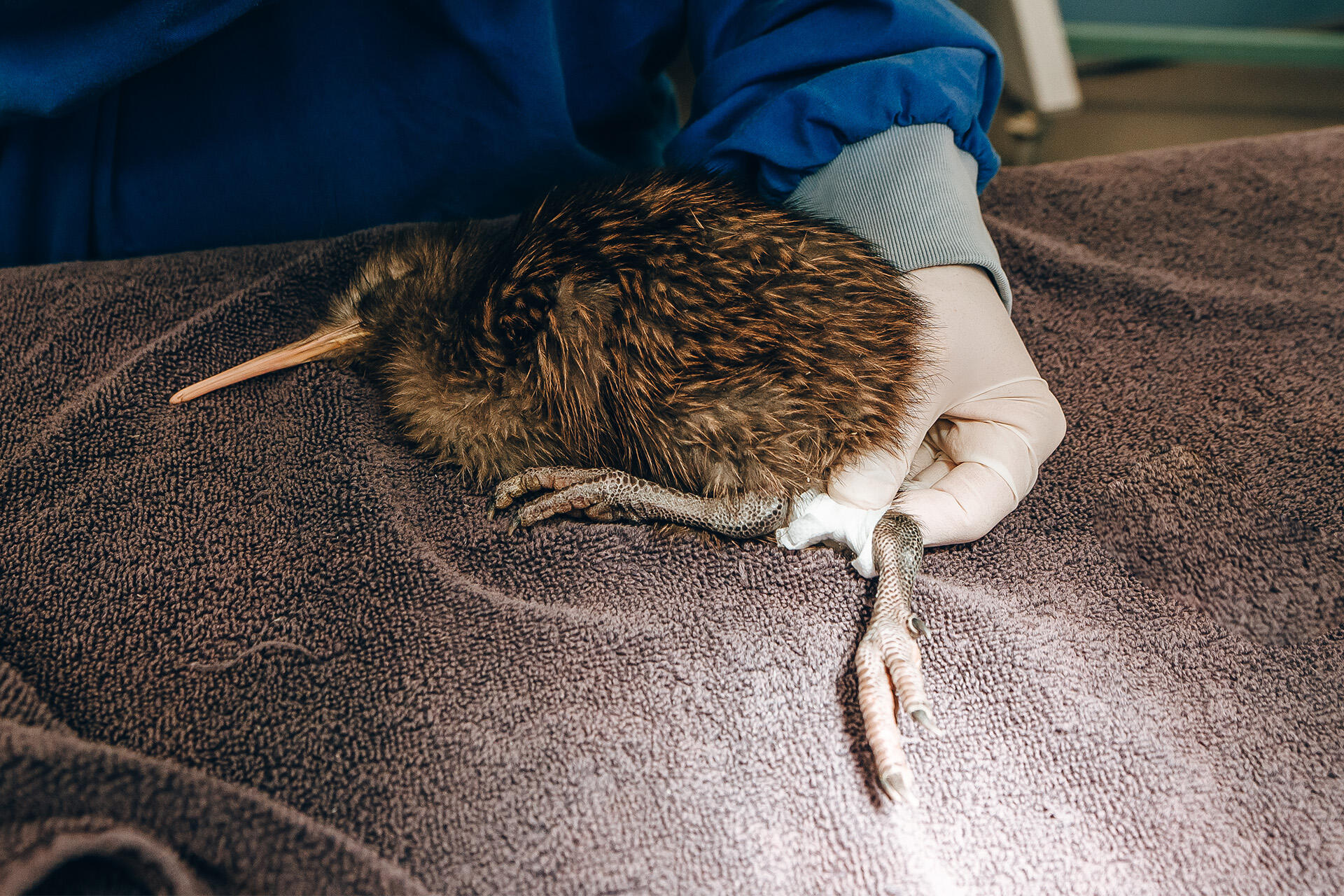When it arrived at our Zoo, the kiwi was thin, lethargic and covered in engorged ticks. Despite its initial limp - no leg injuries were found, and it was using both legs well. Once the chick was stabilised it was given a general anaesthetic for an overall clinical exam. Thankfully, the X-rays showed no issues, but blood test results revealed a high white blood cell count which indicates a possible infection of unknown origin — either fungal or bacterial.
To cover all possibilities, the vet team started treatment with two antifungals, an antibiotic, and an anti-inflammatory administered via tube feeding which includes a specialised kiwi diet. This diet includes beef, ox heart, hill’s science diet cat biscuits, vegetables, and currants. The kiwi is also provided enrichment items such as dirt boxes with earthworms and leaf litter trays with mealworms to encourage natural foraging.
Our veterinarians will continue to assess the kiwi to ensure it is eating well and showing normal blood results before it can be released on predator free island Motutapu.


